by Kori Lyn Angers
As a runner, it's easy to get caught up in getting in that daily run, without taking the time to properly fuel up before and after. Anyone who has been active since we were kids is guilty of this - and we probably got a way with it when we competed in high school. What we know now is that if you deprive your body of the right nutrients at he right time, you can't perform at your best, and you may do your body more harm than good.
Fortunately, all it takes is a bit of planning to avoid sagging during and after a run.
Nutrition and nutrient timing have a tremendous effect on sports performance and recovery. The right combination of nutrition and nutrient timing makes you feel your strongest and gives you the mental edge to give it all you’ve got on the track. And afterward, to still have the capacity to finish out your day energetically, and do it all again the next day . . . and be better because of it!
Here are some quick tips to nutrient timing – with sample meals – for a run or workout:
One to Two Hours Pre-Run
A complex carb, a simple sugar, and a little fat. Here are some examples:
- 1 slice of whole wheat toast , 2 teaspoons of nut butter, and a teaspoon fruit jam
- 1/2 Sweet potato, 1 tsp peanut butter
- 6oz of low fat yogurt
- 1/2 a bagel, with 1 tsp. fruit jam. or cream cheese
- 1/2 banana, nut butter or 1 serving mixed nuts
If the run is first thing in the morning, eat something you know you can tolerate. Keep it simple. And NEVER experiment with your food intake on race day!
Post-Run
This is the most important meal of your performance plan! It should be eaten within 1/2 - 2 hours post-workout. The longer you wait after your event, the more your window of recovery and nutrient replacement diminishes, which leads to poor recovery, leaving you feeling strung out during your next workout (and likely for the rest of your day).
This meal should contain 30-60g of carbohydrates (a combination of simple and complex), 15-30 grams of protein, and little to no fat. Now is the best time to include more simple sugars, as your insulin sensitivity is at its peak post-workout. The sugar will work in conjunction with the insulin to shuttle protein and glucose to the depleted muscles, where it can go to work on restoring glycogen stores and muscle repair.
Examples of the ideal post-run meals:
- Protein shake and a banana
- Protein/ energy bar with at least 30g carbs, 15 grams protein and less than 10g Fat
- 8oz low fat Greek yogurt with fruit
- Chocolate Milk
- 4-6oz Lean protein (chicken, fish, lean beef) with 1-2 slices bread – white bread is ok here! – medium potato, or 1 serving of pasta or rice
As a performance-based athlete, it’s never a good idea to run under-fueled or under-hydrated. Your body needs a ton of high-quality fuel at the right time to run at a peak level. Your body is smarter than you are. It’s a sure thing that if you’re running feeling like you have no fuel or have not recovered, your body will NOT be giving its all. At this point, all systems are trying to conserve energy and just “make it through,” rather than becoming stronger and faster.
Always give your body what it needs so that your body can give you all it's got!




